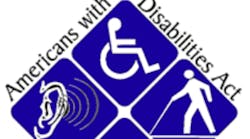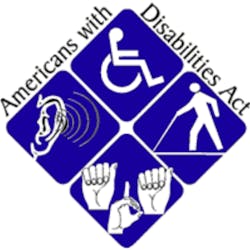Americans with Disabilities Act and its impact on your dental practice website
Is your dental website compliant with the Americans with Disabilities Act? There's been some confusion recently among dentists regarding the regulations. Find out what you should know here.
___________________________________________________________________________________________________________________________________
During the past year, inquires have surfaced about the need for dental practice websites to be compliant with the Americans with Disabilities Act (AwDA).
In fact, numerous dental and medical practices received letters from attorneys that threatened legal action if the practices did not update their websites to become AwDA compliant. Unfortunately, federal regulations are not very clear cut and requirements continue to evolve.
While dental practices are considered places of public accommodation that must adhere to the AwDA, it remains to be determined whether practices’ websites are subject to the same regulations. There is currently no legal definition of AwDA website compliance. The U.S. Department of Justice is not expected to release official regulations for website accessibility until sometime in 2018.
What do the recent website accessibility lawsuits claim?
Although the AwDA does not explicitly include websites, the argument can be made that the language and spirit of the law include websites as places of public accommodation. This lack of clarity gives courts conflicting views, which recently resulted in lawsuits that claim individual dental practices are denying access to disabled patients and prospects because their websites are not AwDA compliant.
What should dentists do about this?
To mitigate the risk of becoming the target of an accessibility lawsuit and ensure all of your visitors have the best experience possible on your website, it is recommended that you make your website accessible.
The World Wide Web Consortium, the main international standards organization for the internet, published the Web Content Accessibility Guidelines (WCAG) 2.0 for making websites accessible to those with disabilities. Some of the recommendations are:
- The website should provide alternate descriptions of graphical elements.
- The website should properly format forms that require user input so fields can be identified by screen readers.
- Tables that contain data should include column and row headers.
- The website should embed closed captioning or another means to ensure deaf or hearing-impaired users can understand the website’s audio content.
- The website should have high contrast between background and text colors.
Given the rise in lawsuits regarding the accessibility of dental websites, it’s important that your practice be aware of this information and takes the appropriate steps. If you’re unsure if your website is designed to meet the guidelines put forth in WCAG 2.0, reach out to your website provider to confirm or see what options are available.
For the most current practice management headlines, click here.
For the most current dental headlines, click here.
Heather Frechette-Crowley is director of product marketing at ProSites, which helps over 7,500 dentists with their website design and online marketing needs. ProSites members have access to a complimentary website accessibility feature that’s designed to meet the guidelines put forth in WCAG 2.0. For more information or to request a free consultation to learn more about the AwDA, call (888) 932-3644 or click here to request a demo.



